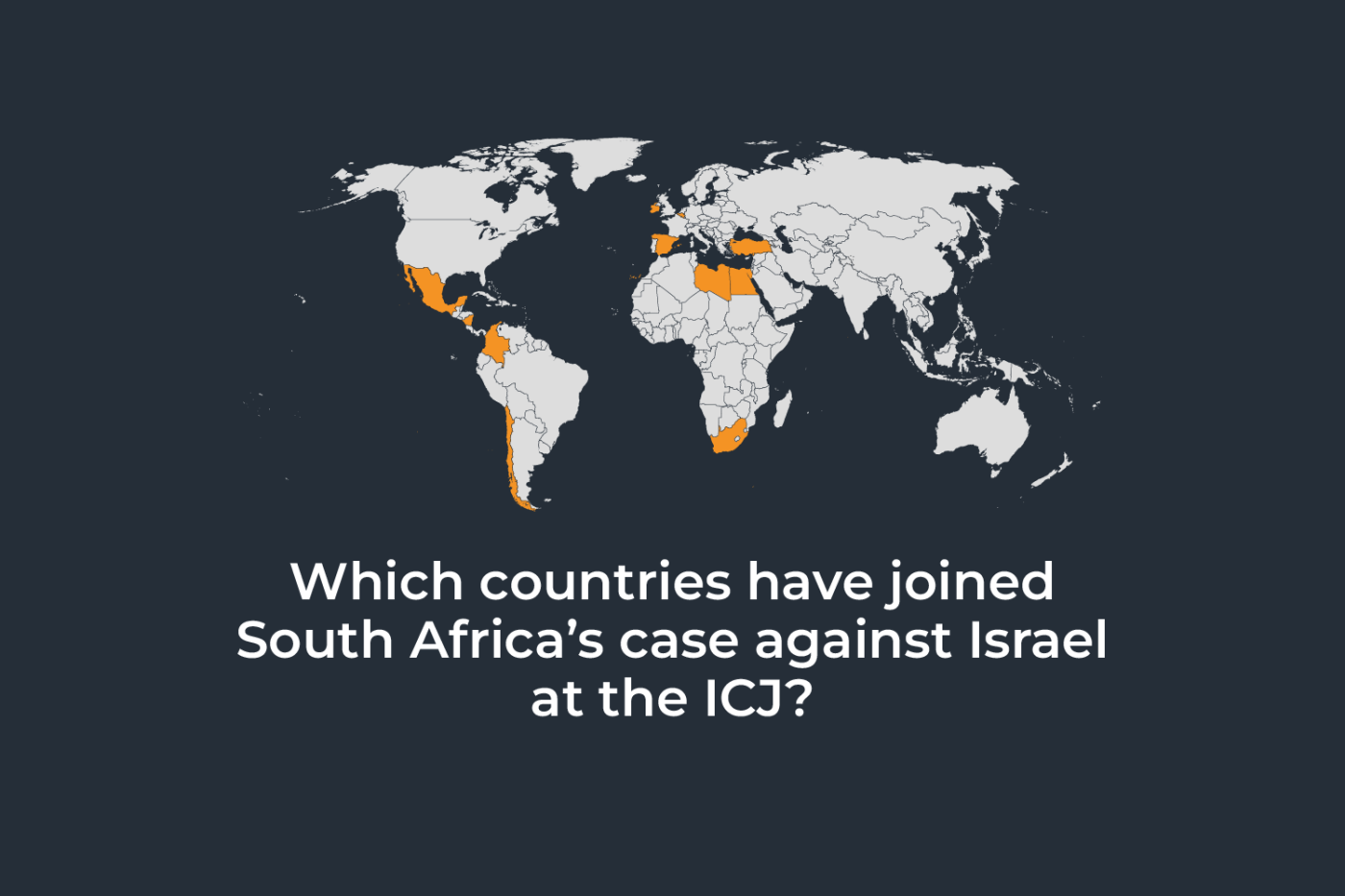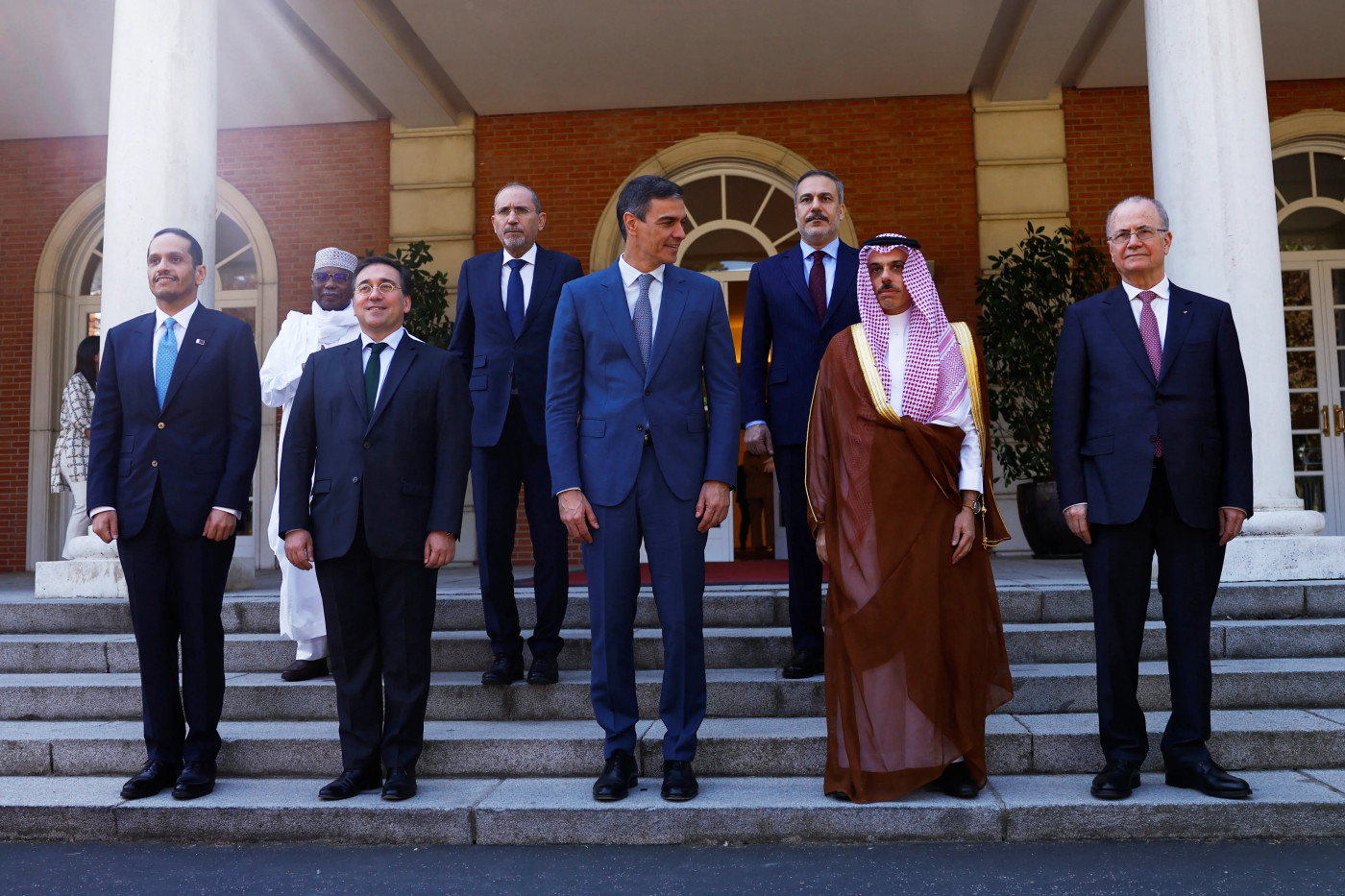Israel-Hezbollah War a 'Matter of Time': Ex-Official
A "very destructive" war between Israel and the Iranian-aligned Hezbollah militia in Lebanon may prove inevitable, a former Israeli national security adviser has said, as cross-border fighting between the two sides intensifies and around 200,000 Israelis remain displaced from their homes in the north of the country.
Eyal Hulata—who served as the national security adviser to prime ministers Naftali Bennett and Yair Lapid—told a Jerusalem Press Club briefing on Wednesday that the situation along the northern border "is more volatile now than it was in recent weeks and months."
Skirmishes have been ongoing along the frontier since October 7, when Hamas launched a surprise infiltration attack into southern Israel—killing 1,100 people and abducting more than 250 others.
Hezbollah—along with Hamas a member of the Iranian-led political and military coalition known as the "Axis of Resistance"—began attacks on Israel in response to the country's subsequent offensive into the Gaza Strip, which to date has killed more than 36,000 Palestinians per data from the regional health ministry cited by The Associated Press.
Hezbollah has vowed to continue its operations against Israel until the Israeli Defense Forces (IDF) withdraw from Gaza. Israel, meanwhile, is demanding that Hezbollah pull back its forces north of the Litani River—which is around 18 miles north of the Israeli border—per the 2006 United Nations Security Council resolution that sought to end the last major clash between the two sides.
Israeli officials have been teasing a major escalation on the northern border for several months. This week, fears of a broader war were piqued by a cross-border Hezbollah attack that sparked several dayslong fires.
Israel has been conducting regular strikes on Hezbollah and Hamas targets and personnel in Lebanon for several months. Though mostly concentrated in southern Lebanon—effectively a Hezbollah state within Lebanese borders—the IDF and Israeli intelligence have also assassinated militants in Beirut.
"I'll be surprised if Israel was not preparing for full escalation," Hulata said on Wednesday. "I would be surprised, though, if Israel preempts it without substantial provocation. But such provocations, unfortunately, exist."
Hezbollah is thought to have around 20,000 fighters, with around the same number in reserve. Better organized, funded, and armed than Hamas, a conflict with the group could prove more difficult and costly for Israel. The group's fearsome missile arsenal has long been a particularly serious concern for Israel and its Western allies.
"There will be damage" in the event of a war, Hulata told Newsweek. "Our defenses are good when we're awake. Unfortunately, on October 7, we were not alert. But when we are alert, I think our defenses work very well. This doesn't mean there won't be casualties."
The White House has repeatedly called for calm, with U.S. officials warning "any actor seeking to exploit the situation" not to do so.
But Hulata said he is skeptical of any diplomatic solution. "I think really, it's more a matter of when than a matter of if," he said.
"If Hezbollah is not going to remove their forces from the border—and I don't see any political agreement brokered by the Americans or the French or anyone else that would be robust enough over time to keep Hezbollah away from our borders—unfortunately, I think that it's just a matter of time until we will need to do it ourselves."
The former national security adviser proposed setting a September 1 deadline; when Israeli children are set to start the next school year. By then, he said, the 200,000 Israelis evacuated from their homes in the north of the country should be able to return.
"All those who think that they can broker a deal between Israel and Lebanon: it's the beginning of June, and we have until the beginning of September. That's three months. Go ahead, broker the deal."
"By September, it's going to be almost a full year that they haven't been in their homes; that's inconceivable for our country," Hulata added. "We cannot continue this attrition."
Disclaimer: The copyright of this article belongs to the original author. Reposting this article is solely for the purpose of information dissemination and does not constitute any investment advice. If there is any infringement, please contact us immediately. We will make corrections or deletions as necessary. Thank you.

